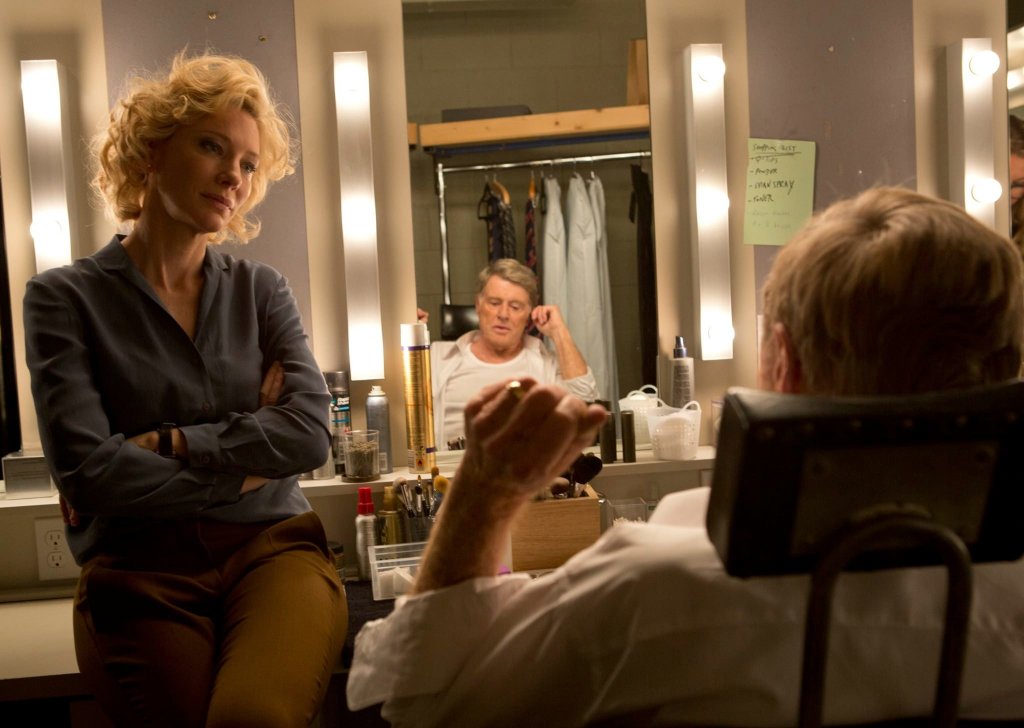In 2004 an investigation by the 60 Minutes television program into then-President George W. Bush’s military record collapsed after airing, when the veracity of documents claiming his lack of service were extensively questioned. It created a crisis at broadcaster CBS, which was forced to retract the story and conduct their own damning investigation into what had gone wrong. In 2015 this media event was adapted into Truth, a dramatic feature written and directed by James Vanderbilt and starring Cate Blanchett and Robert Redford. There is a significant element of star power at work here, with a cast that also includes Dennis Quaid, Elisabeth Moss, Topher Grace, Bruce Greenwood, and Stacy Keach. It does bring into question what attracted these actors to this particular project, since in its weakest moments Truth feels made for television and even in its strongest simply reminds one of other, much better films.
Television segment producer Mary Mapes (Blanchett) assembles a team of journalists to investigate President George W. Bush’s military service record; specifically whether or not the President pulled strings to be admitted into the National Guard to escape conscription into the Vietnam War, and if he subsequently went AWOL from the post in the early 1970s. The investigation appears to hit a breakthrough when whistle-blower Bill Burkett (Keach) comes forward with incriminating documents. Once the segment airs, however, step-by-step Mapes’ entire investigation seems to fall apart.
Journalism is often the perfect profession through which to filter drama. The gradual revelations of a news investigation provide narratives with a brilliant sense of unfolding, with numerous opportunities to highlight character, or showcase social issues, or build suspense. Redford is no stranger to the genre either, having notably starred in 1976 Oscar-winner All the President’s Men. Here Redford plays famous news anchor Dan Rather. He is deeply dignified in the role, but honestly it does not feel as if Rather really has too important a place in the story. Instead it belongs to, and thankfully spends more time on, Cate Blanchett’s Mary Mapes.
There is enormous potential in the source material, but Vanderbilt fails to pin that potential to the script. Throughout Truth there is a distinct lack of originality, so that each scene feels photocopied from another film and most key lines of dialogue can be comfortably predicted before they are said. The ultimate impression generated is of a film not inspired by real events but rather one inspired by other journalism movies, and which simply uses the events of 2004 as story fodder. While there is a certain entertainment value in seeing what happens, there is no clear sense of what the film is ultimately about. Feminism? The role of the media in contemporary politics? An accusation of political corruption? Vanderbilt dabbles in all three without ever picking a singular focus.
Truth came and went without a fuss in 2015. Nine years later, and with the film now streaming on Netflix, it is not difficult to see why that is the case. This is a disappointment: not terrible by any means, but difficult to defend as any serious measure as good.





Leave a comment